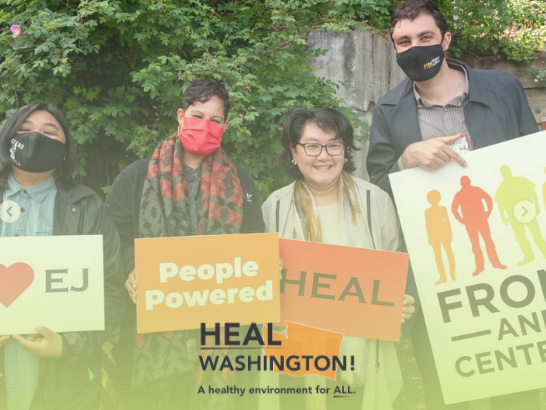After hearing from people across the state through the Environmental Justice Task Force, the HEAL Act was designed to meet the needs and priorities of communities overburdened by pollution and grappling with stark health disparities, such as increased asthma rates and lower life expectancies.
The HEAL Act defines environmental justice*, requires community engagement to develop responsible solutions, and creates an Environmental Justice Council to review projects, decisions, and plans from state agencies (Department of Ecology, Department of Natural Resources, Department of Commerce, Department of Agriculture, Department of Transportation, Department of Health, and the Puget Sound Partnership).
The HEAL Act is a foundational law that will reduce health disparities and give a voice to overburdened communities, who already know the solutions they need and deserve for equitable health and well-being outcomes.
*Environmental Justice, as defined by the state, means the fair treatment and meaningful involvement of all people regardless of race, color, national origin, or income with respect to the development, implementation, and enforcement of environmental laws, rules, and policies. Environmental justice includes addressing disproportionate environmental and health impacts in all laws, rules, and policies with environmental impacts by prioritizing vulnerable populations and overburdened communities, the equitable distribution of resources and benefits, and eliminating harm.
